Roland Hopkins
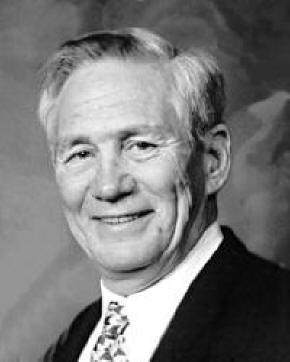
|
Roland (Rolly) Hopkins is a successful newspaper publisher
whose background (way back) included Lay preaching, and he came
very close to becoming a fulltime minister. Instead, he spent
five years as a radio disc jockey, successfully feeding and
clothing a wife and three children. Fun, fun, fun. Much more
fun than publishing a deadlined weekly newspaper. He also
dabbled in professional horse racing, winning (as an owner)
over 300 races and having a horse nominated for the Kentucky
Derby (the dream of every owner, breeder and and trainer). More
fun, fun, fun; but no profit, profit, profit. Rolly’s real
passion was and is writing fiction, and these books are his latest
attempt at new fun.
FACEBOOK:
https://www.facebook.com/Rollyhopkins
|
New Title(s) from Roland Hopkins
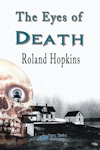
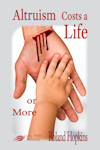
Order the Print Book of The Eyes of Death
Order the Print Book of Altruism Costs a Life—or More
Click on the thumbnail(s) above to learn more about the book(s) listed.
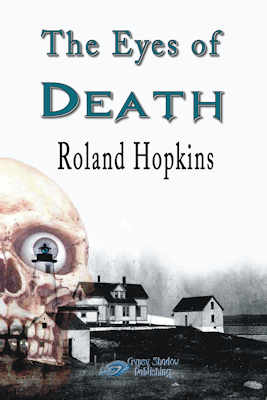
|
The twenty-nine year-round inhabitants of
Fawn Island located off the coast of Cape Cod shrink to
twenty-eight as a local handyman is found dead in mid-winter off
season. Murdered? Maybe. But the area DA goes out of his way to
keep the Cape Cod and island reputation as clean as possible,
especially since it is the home of the famous Kennedy family. He
hires a local reporter to interview all the remaining residents
and prove that the death was an accident.
Excerpt
Word Count: 100500
Buy at:
Smashwords (all formats) ~
Barnes and Noble ~
Amazon
Price: $ 4.99 |
|
|
 |
ORDER The Eyes
of Death PRINT BOOK
TODAY! (ISBN
#978-1-61950-325-0) |
| |
|
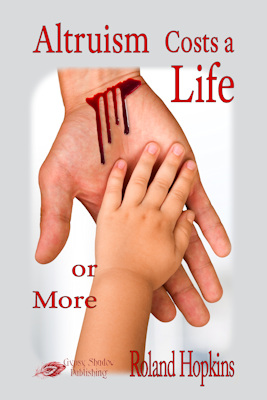
|
The 7 deadly sins count against you at
death—does altruism change anything?
A man drowns saving a little girl from the same fate on a
freezing wintry day. He returns to earth after his death for a
big lesson. Will he be able to step into someone else's life and
achieve redemption?
Excerpt
Word Count: 29232
Buy at:
Smashwords (all formats) ~
Barnes and Noble ~
Amazon
Price: $3.99 |
|
|
 |
ORDER Altruism Costs a Life—or More PRINT BOOK TODAY!
(ISBN:
978-1-61950-323-6) TODAY! |
| |
|
| Excerpts |
The Eyes of Death |
Prologue
Flash Forward Mid-March, 2015
Until I experienced it, I couldn’t have imagined the sheer
terror of being in pitch-black darkness, knowing that I had only
so much air to breathe, and not daring to call out for fear of
using up my final supply of oxygen. I shared a decaying wooden
coffin with the rotting forty-year-old bones of a murdered
woman—identity unknown. My pounding head needed at least a
bottle of aspirin, and I could feel a bloody, wet bump on the
back of my skull where someone had conked me with a shovel. I
didn’t know how long I’d been out—maybe five or ten minutes.
Maybe an hour.
My cheap crystal watch didn’t glow in the dark.
I stretched my cramped arms to explore the limits of my
confinement, about twelve inches in front of me, and I recalled
that the grave was quite shallow—maybe three feet deep. All my
fear-fed, adrenaline-energized strength might have been able to
push open the dilapidated coffin-cover, assuming that whoever
covered me over hurried away before piling on too much heavy
soil. Then again, if I failed, how much oxygen would that effort
use up?
My fingers found a familiar shape. Cell phone to the rescue, I
thought and sighed relief.
The top flipped open easily and I located the ON button. It sent
a haze of light into my tomb. With numb fingers, I felt small
coffin-cover cracks in the wood above my head.
Bad news: Dirt particles began to sift onto my face.
Good news: I could easily click on the contact I needed, my
lovely newspaper associate Patty in Hyannis. I wasn’t really up
to date with the techy world yet; only five names were
speed-dialed into my cell phone.
Real bad news: The screen announced dimly, BATTERY LOW. My worst
fear had been realized. Shame on me. I should have recharged it.
I’m not ever that organized. One of my many faults.
I suppose there are worse fears, like being stuck in a crowded
elevator on the fiftieth floor of the Prudential Tower, or being
stalled in the middle of the George Washington Bridge when you
hear the concrete cracking, or sitting on an airplane when the
captain’s panicked voice says, “Fasten your seatbelts, we’re
going down.” But this fear was certainly enough for me.
Stephen Hall, Hyannis newspaper reporter, had been buried alive.
By the way, I’m Stephen Hall.
~~~~~~~~~~~~~~~~~~~~~~~~~~~~~~~~~~~~~~~~~~~~~~~~~~~~~~~~~~~~~~~~~~~~~~~
Chapter One
March, 2015
“It’s a waste of time, me going back to that little island,”
Edgartown Police Captain George insisted. He was fat, close to
65, and less than a Rhodes Scholar. “No one knows nuthin’. You
think you guys on the mainland had it bad; Fawn Island Winter
weather was damned lousy—most snow in recorded history. No human
being could’ve boated, or even flown to or from that place
twenty-four hours either side of the guy’s death. That leaves us
with those few who live there year-round.”
“How many?” the barely five-foot-tall DA asked.
Captain George counted on his fingers. “Not many more than
these,” he said, throwing his open hand out a few times.
“Twenty-nine natives to be exact. One dead. Over three hundred
in the summer. Besides, no one’s even come forth to claim the
body. What does that tell ya?” The police official lit up a
filtered Chesterfield, the last one he ever planned to
smoke—took a deep puff, and coughed.
Cape and Island’s District Attorney Patrick Neil frowned and
said, “The coroner, Doctor O’Dell will consent to write a
complete report only after you’ve consummated your job. Ever
since he became a member of the AAFS, he’s been impossible to
reason with.” Neil was lean, immaculately dressed, with flawless
speech, and maybe five years younger than George.
“What the hell’s the AAFS?” Captain George asked. Smoke swirled
around his full head of silver hair like a halo.
The DA winced at George’s ignorance. “The American Academy of
Forensic Sciences is to medical examiners and coroners what the
American Bar Association is to lawyers, or the American Medical
Association is to physicians.”
George frowned. “So what?”
“So now he perceives himself as seriously important. He’s driven
to perform his duties by the proverbial book. In the old days,
he’d scribble his name and move on.”
George shrugged and snuffed out his cigarette. “I’m finally
quittin’, by the way.”
“The force?”
“No. Smokin’.”
“Sure you are. You’ve been quitting ever since the day we met.”
The DA perused a few papers on his orderly desk, and then peered
into desolate Wood’s Hole Harbor through his salt-water-stained
picture window, where a few hardy lobster boats headed out for a
late Winter daily catch. The sun had finally peeked through a
few days before, but it was still snowing heavily every week.
When it rained, everything froze. Miserable.
George fumbled in his pockets for another cigarette. “So that
prick O’Dell says he’ll sign off on the Fawn Island death if and
when I get a statement from all the inhabitants?”
“It sounds easy. The census says that only twenty-nine people
live there year-round. Three of them are kids. That leaves—ahh,
wait a minute while I do the math. Yup. That’s twenty-six, and
one is dead, so that leaves twenty-five suspects, if it turns
out to be a murder.”
“I had a hellava time gettin’ any of them to talk to me about
the death. And I know most of them personally.”
Captain George dug a squashed cigarette out of his back pocket.
“Most of Fawn Island’s inhabitants are simply odd. I mean, why
the hell would anyone live like a hermit out there in the first
place?”
The DA straightened his silk tie. “Possibly they migrated there
to get away from people like you,” he said and chuckled.
“Screw you, too.”
DA O’Neil’s features remained impassive. He glanced over
George’s head to the far pine-paneled wall carrying several
framed pictures—a college graduate diploma from Yale, a law
degree from Harvard Law School, and a photo of himself with the
late Massachusetts Senator Edward M. Kennedy seated in a small
sailboat, both smiling and holding cans of beer.
Neil waved a crooked finger at the police captain. “Don’t be a
naive asshole all your life, George. I know that you need two
more years ’til retirement with full pension. So, how would you
like to retire tomorrow?”
George closed his mouth and dropped his chin onto his chest like
a child who had just been scolded. “They just won’t talk to
cops,” he muttered. “I tried, and they won’t talk to me. Some
won’t even open the door when I knock. I really don’t blame
them. Why the hell do you think they live there year round in
the first place? They all want to get away from something or
someone, and they don’t want any publicity. Does that make
sense?”
“How about that reporter kid, Stephen Hall? He’s got charm—if
nothing else. Amazing psychological factoid, but sometimes
people spill their guts to reporters when they really should
keep their stupid mouths shut. Hey, all he’s got to do is get
each one of them to utter one sentence or two. Then the coroner
will have to sign off. That’s all I need.”
George smiled. “I’m way ahead of you, boss, and Hall ain’t no
kid anymore. He’s almost fifty, and I already approached him to
take the job. I even offered to pay a few extra bucks out of my
own pocket, if he’d help me with the interviews.”
“And what happened?”
“He told me to go fuck myself.”
“Why? Doesn’t he need the dough? Sounds easy enough to me. Had
he been drinking?”
Captain George withheld a punch. He’d always been a tough cop,
one who quite often got in trouble for punching first and asking
questions later. The town loved him, and he always somehow
avoided punishment. “He’s been around the block a few times and
said I couldn’t pay him enough to investigate a murder. His life
is too precious—risked already one more time than most people.
I’m sure you know his Gulf War story. Do you blame him?”
“This isn’t a murder, and we don’t want anyone thinking so. No
big deal. I remember his dad. An honest cop and a good guy. And
I remember Stephen when he was a kid—a real good high school
athlete, president of his class with a great future. What the
hell did happen to him?”
“The poor kid signed up for a two year stint when there were no
wars in sight,” Captain George said. “I even encouraged him to
do it. Serve two years and you qualify for the GI Bill—lots of
college tuition help. Who knew Saddam would invade little Kuwait
for their oil? Who the fuck had ever even heard of Saddam? The
kid got shot up pretty bad, but survived, came home, drank at
lot, and failed at several jobs before being hired as a reporter
for the local newspaper.”
“So maybe he’s our guy. It’ll make a good story for his
newspaper.”
“I already told you that he refused. After getting his ass shot
off in Kuwait, he’s shy of anything dangerous. And you have to
admit that murder is dangerous.”
The DA scowled. “Every fucking human being has a price,” he
said. “The fuckin’ Golden Rule. He who has the gold, rules. I
have a special hidden bank account to cover things like this.
How much do you think he’d take to do the job? ”
George blew a crooked smoke ring. “If he’d take anything, I’d
guess two hundred a day for five days. My guess is that his base
pay at the Hyannis Gazette is probably half that.”
“How about I offer a flat five grand? It’s worth it to me to
clean this thing up real quiet. The Clintons still vacation at
the Vineyard, and Obama visits every year. What do you think
would happen if someone found out some bum got murdered on one
of our perfect islands?”
George smiled. “I’m sure I can get Hall to go for that price.
I’d kill my wife for that amount.”
“You aren’t married, George.”
“Figure of speech, sir. I’ll talk to Hall. Wars fuck a lot of
people up, you know. But he seems to be getting better lately.
We play tennis and racquetball every week to stay in shape. And
he’s in a hellava lot better shape than me. He could pass for
forty, and I know he’s almost fifty.”
|
| Back to The Eyes of Death |
Altruism
Costs a Life—or More |
Chapter One
FADE IN ON A SUNNY WINTER DAY—CAPE COD, MASSACHUSETTS—DOWN A
BUSY HIGHWAY AIMING FOR A LARGE AUTO BRIDGE HEADED ACROSS THE
CAPE COD CANAL INTO SANDWICH—THE FIRST CAPE TOWN SITTING NEXT TO
THE ATLANTIC OCEAN ON THE LEFT, AND TO ALL NATIVES AND VISITORS
PATTI PAGE IS SINGING HER FAMOUS FOREVER POPULAR VERSION OF OLD
CAPE COD.
“If you’re fond of sand dunes and salty air, quaint little
villages here and there, you’re sure to fall in love with old
Cape Cod.”
THE 1985 WINTERTIME SUN BEATS DOWN on a frigid Cape Cod Sunday
morning—the ocean white-capped and frigid looking. Patches of
snow sparsely paint the flat region’s canvas. An inexpensive,
small, two-story Ranch House sits next to and across the street
from duplicate constructions built and sold forty years ago
right after World War 2.
This particular backyard contains an old broken swing and slide
set, a stone cookout fireplace, a small doghouse, and a net-less
basketball hoop hanging crookedly from a branchless tree. A
wide, curtained picture window hides a modestly furnished living
room where a heavyset man in his mid-fifties sits on a frayed
divan eating his breakfast and drinking a Pepsi. He’s wearing an
LL Bean woolen lumber jacket and a backward Red Sox baseball
cap. He’s watching on his sixteen-inch, black and white TV
screen, his favorite show—The Three Stooges—Larry, Moe, and
Jerome Lester Horowitz, better known as just Curly. Our Moe is
chuckling as the three crazies sock, yuk, and fling pies at each
other.
Entering the room carrying a tray of two helpings of eggs and
bacon, along with several muffins, is a much overweight woman
wearing an unattractive Mu-Mu. She sits beside her mate of many
years, Moses Archer, local carpenter, and lifetime resident of
Sandwich, Massachusetts.
“We could go to church,” she says in sort of a pleading soft
voice. “You could still see the Pats play this afternoon.”
Moses Archer looks away from the TV screen, snuffs out a half
smoked Lucky Strike in a cluttered coffee-table ashtray, and
plants a light kiss on his wife’s sagging cheek. “You go,” he
says. “I’ll go with you next week. I promise.”
Out of her view he has his fingers crossed.
“You promised last week,” she grumbles at him. “I miss going
with you. The first ten years of our marriage you used to go at
least once a month. Now. Never.”
“We’ve been married over thirty years, dear,” Moses says. “The
reason I went was to make you happy, and now I don’t think I
even remember the Lord’s Prayer. In 1962, the stupid Supreme
Court ruled it unconstitutional to start the school day with the
Lord’s Prayer. And, I hate to admit it, but this country has
been going down the drain ever since.”
A built-in wall bookcase containing several framed photos
dominates the decor.
“And I like eating Sunday breakfast here,” Moses says, pointing
at the wall. “It brings back all our good memories. Look at that
one.” He points to an eight by ten black and white showing him
as a teenager with wavy black hair, a muscled body, wearing a
football uniform, and a big smile. A caption under the photo
reads:
DIVISION III HIGH SCHOOL FOOTBALL CHAMPIONS 1948
MOSES ARCHER QUARTERBACK, CAPTAIN
A second frame depicts several high school cheerleaders forming
a pyramid. The attractive girl on top resembles Moses’s dowdy
wife, but is well formed, thin, bright and pretty. The caption
reads:
1948 SANDWICH HIGH SCHOOL CHEERLEADERS SQUAD
“Remember when you looked like that, dear? A movie star.”
The third photo is a typical wedding shot—Moses in a white tux,
and his young wife beaming. Upon closer examination, her waist
appears quite thick in relation to the cheerleading picture. The
caption reads:
MOSES AND SUSAN TIE THE KNOT, SEPT. 23,1949
Another photo shows a heavier Susan holding a smiling baby on
her lap. Then one shows an even larger Susan holding another
baby. A thick wooden frame depicts a Little League baseball team
with two young boys and Moses as coach.
SANDWICH LITTLE LEAGUE CHAMPS, 1961
A clock gongs ten times. The Stooges show ends and a film noir
movie is announced. Susan switches the channel to a religious
show—the preacher asking for donations.
Moses takes a final bite of a muffin, buttons up his jacket,
pockets his cigarettes, plants a kiss on top of Susan’s head,
and walks to the front door.
“Can’t you kiss any better than that?” his wife asks. “And do
you have go to the Legion every Sunday? It is the Lord’s Day,
you know.”
Moses turns. “I work my ass off all week so you can live in this
luxury, so this is the one day I can let loose and enjoy my
friends. Nothing personal, dear. Nothing personal.”
“And when’s the last time we made love?” she leans forward and
asks. “I forget what it feels like. Some of my friends still do
it—ya know?”
Moses forces a cough. “When I get home, dear. We’ll talk about
it when I get home.”
His wife frowns and waves her hands—one holding a Bible, and the
other giving her husband the finger.
Moses slams the door behind himself, walks across a frozen lawn,
and climbs into his old two-door pick-up truck, starts it up,
and pulls out of the driveway. A sign of the side door of the
truck reads:
MOSES ARCHER EXPERT CARPENTER
Moses cracks open a can of Budweiser and switches on the radio
to the sound of the Sunday football station. Every Sunday during
football season Moses spends the day at the Legion with his
buddies—drinks beer, plays cards, watches the game, and
gambles—nickel/dime stuff. Harmless fun.
He turns up the radio station to hear the announcer. “So Steve
Grogan will be leading the Pats against the Stealers in today’s
game. Starting time is an hour away. Still a few choice seats
remain.”
Moses lights up another cigarette, takes a deep drag, blows a
ring, and then tries to blow a smaller one through it. Great
trick if I can ever learn it, he thinks to himself. I caught
that new waitress at the Hamburg Shop eyeing me. A cool trick
like this would get her attention. But I don’t think I could
ever cheat on Susan. Never have yet. Wish she’d lose some of
that damn weight. Then we could have some fun like in the old
days.
Moses travels down a small highway road dotted with an
occasional cottage. The ocean and the wide beach is on his
right, and the town up ahead is still a few miles away featuring
the local Catholic Church, high school, legion, and stores
surrounding a gazebo-centered park. His truck swings around
several cranberry bogs, and then a large pond—in the Winter
always bustling with skating activity. Some people wave at Moses
as he slows down and drives by. He opens his window and waves
back, recognizing several faces. A few are jumping up and down,
and another few seem to be calling to him. He stops, and backs
up. He cranks open his window all the way.
The hands waving at him appear frantic, rather than recognizing
hellos, how’re doin? Several point to the ice, yelling for help.
Moses swerves off the road toward the pond, and stops next to
the sand that leads to the frozen water. He hops out of his
truck facing a bunch of frightened, out of control neighbors.
“Linda Cross, Linda Cross,” one elderly woman cries out. “She
fell through the ice. She’s drowning.”
“Where? Where?” Moses asks, his breath coming out as cold steam.
Several people point to a large hole in the ice, maybe twenty
yards off the cold, sandy beach. “There. There. She just
disappeared a few minutes ago.”
Moses throws off his LL Bean jacket and kicks off his shoes.
“Little kids can’t drown in this town,” he says, almost
breathless. “Things like that don’t happen here. Only on TV.”
He runs across the sand, and then across the ice, slipping and
sliding on his butt a few times about twenty yards out onto the
frozen pond. He stops in front of a cracked ice hole—maybe six
feet in diameter. He leans over, lays flat on his stomach, and
reaches as deep as his arms will allow, hoping to feel the
little girl’s body.
“Ouch. Damn.” Unfortunately, the frozen water, better known as
ice, is surprisingly as sharp as glass, and carves a deep slit
into his hand. He yells another ouch and damn, but continues,
and reaches nothing.
Now he stands straight up, looks at his bloody hand, feeling the
blood starting to freeze, takes a deep breath, and dives
straight down—mentally praying that it isn’t too deep. He
furiously feels around, reaching at least seven feet to the
muddy bottom. He can’t see anything—only feel. He stretches out
his arms, furiously groping—gropes more, kicks, and grabs.
He finds nothing solid.
|
|
Back to Altruism Costs a Life—or More |
| |
| top |
|
